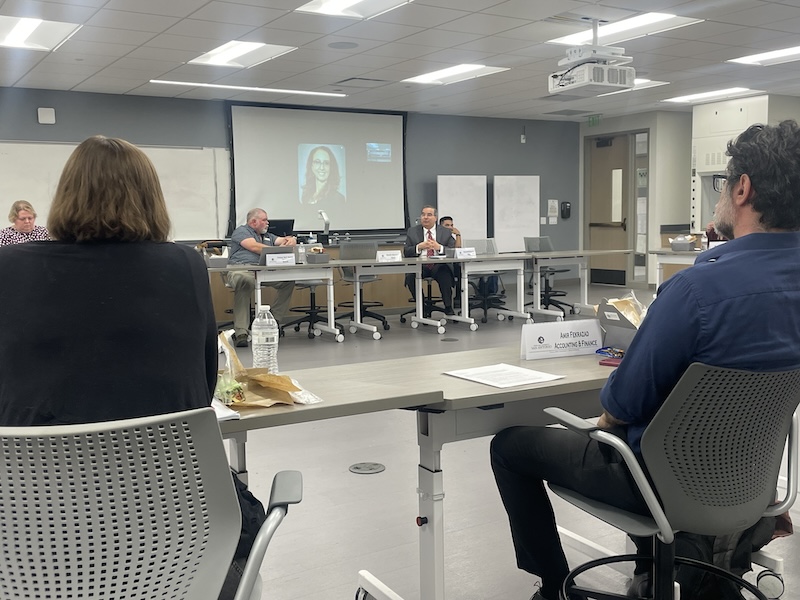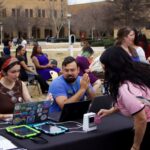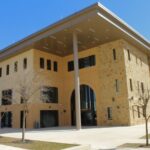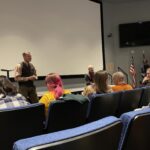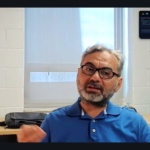The Faculty Senate at Texas A&M University-San Antonio prioritized budgets at last month’s meeting in the Science and Technology Building.
Senators addressed the challenges posed by the National Science Foundation’s decision to halt funding. The discussion centered on strategies for continuing to advance research initiatives despite the uncertain financial landscape.
The NSF’s announcement has left many researchers concerned about the future of their projects.
Mohamed Abdelrahman, provost and senior vice president for Academic Affairs, stressed the importance of perseverance in submitting proposals at the May 2 meeting.
“This is the time to double down on asking for the submission of proposals,” he urged, highlighting the need to explore not only federal but also private funding sources. “You know we may broaden our perspective here, not just aim at the federal stream of funding, but look at private foundations as well. But again, this is the time because funding is very important for all of us.”
Davida Smyth, professor in the Natural Sciences department, offered practical advice for grant writing in these turbulent times.
“Write a good grant that you can pivot and turn,” she suggested, emphasizing the value of interdisciplinary proposals that can adapt to changing solicitations.
With the recent budget cuts to the National Institutes of Health, Smyth warned of tough times ahead but encouraged collaboration among faculty to maximize available resources.
“We’re heading into very tough times but we should, as much as we can, work together so that we can spread what resources we have because we don’t know when things will pick up again.”
The NSF has recently implemented restrictions on specific keywords in grant proposals, such as “ethnicity,” “Black,” “Latinx,” “disabilities,” “LGBTQ,” “women” and “gender.” These terms now trigger additional scrutiny and could lead to grant rejections, making it increasingly difficult for staff and faculty to secure funding.
This policy stems from Executive Order 14151, titled “Ending Radical and Wasteful Government DEI Programs and Preferencing,” which aims to reshape research funding and policy language.
Daniel Delgado, associate professor of sociology who facilitates equity in his teachings and research, voiced concerns about the impact of these restrictions.
“There are disciplines, mine included, that every single word we use is on the list. Every single concept we have that we teach is on the list,” Delgado said. “We can’t talk about the theories, the data or the people that we study. We just can’t. And I think that is something that needs to be discussed. I appreciate the optimism but realistically, there are disciplines that are just not going to get funded. Not through the NSF.”
Despite the challenges, Abdelrahman reminded attendees to maintain a positive outlook.
“Stay positive; the sky is not falling,” he said, underscoring the importance of resilience and adaptability in securing funding.
The Senate also raised concerns about state funding for five proposed programs: nursing, health care administration, construction management, computer engineering and electrical engineering.
A&M-San Antonio President Salvador Hector Ochoa, who attended Texas Legislature meetings, said the development of new programs is essential for growth and student retention.
Ochoa addressed concerns from a senator about the lack of student retention.
“What we are finding is a lack of programs they are interested in pursuing,” Ochoa said. “They like their time at the university but want to pursue programs not yet available, in particular engineering.”
Despite the university identifying the programs as key to student interest and retention, Sarah McBride, associate vice president for university communications, said funding for them was not included in this year’s legislative session.
“We are exploring various options to meet the goal of launching these programs in the future, but it’s too soon to know specific details on next steps,” McBride wrote in an email to The Mesquite June 9.
Parker Foreman, Juliette Vasquez, Nathaniel Hernandez and Joseph Araujo contributed to this story.
